
You want to plan your first trade show, but where in the world do you start?
Start with a brainstorming session to create a marketing plan outline to determine several key items, such as what is the purpose of the trade show, what is your target audience and target exhibitors, and where would you like to have your trade show.
These several basic things will give you the foundation to begin building your trade show, a successful trade show that is.
Once you have that foundation in place, even a simple Word document will do, use the following 15 tips to help you plan out your planning process, so you don't miss the most crucial parts.
- Give yourself one year to plan the event. You need time to plan the theme of your event, the size of attendees you have in mind, your budget, gather sponsors, vendors, entertainment, and book a venue, among other things. So if you're going to stage an event, the first rule is – Don’t Rush.
- Research. Ask your clients what kind of events they go to. Tap the minds of colleagues, professional organizations (related to your industry), and event sponsors for ideas. Ask event sponsors for data on their past events, a number of attendees and vendor participation.
- Go online. Consult trade show directories, the local chamber of commerce, and business groups. After you've done your research, you'll be in a better position to decide the theme and type of event that you want to have.
- Pick the right venue. In choosing your venue, keep in mind your event theme, target market and the size of the trade show that you have in mind. Not all trade shows require a huge convention center. Smaller trade shows can be held in a hotel ballroom, banquet hall, or private or public organization rooms. Once you've chosen your venue, reserve it immediately. Many venues are already booked months in advance, so do your research and booking early.
- Plan your layout. Your floor plan should accommodate different types of booths. Charge a higher premium for booths located at the ends of the aisles and for those that will need more electrical outlets. In making your layout, factor in the number of people who will be attending your event so that there is sufficient space for them to walk from booth to booth.
- Solicit vendors. Present potential vendors with your event theme, a layout of your floor plan, and details about the overall setup. Let the vendors choose their booth space, but make sure that your sponsors have larger exhibit space than the average vendor booth. The key is to show vendors how they can benefit from participating in your trade show.
- Solicit sponsors. Sponsors will help cut down costs. Some great sponsors are radio stations and newspaper publications because when they advertise their presence at your event you get free advertising. You can also exchange publicity and advertising for your event in exchange for booth space. Other sponsors may be enticed by larger booth space at prominent locations in the trade show.
- Entertainment. The entertainment should suit the theme of the event. Good entertainment can attract crowds and keep them at the event longer. An evening party to open the trade show or close it is a great way to help attendees network with each other and vendors and sponsors. Book your entertainers well in advance so that they can be mentioned in your advertising, publicity and promotional materials.
- Get caterers. Attendees who buy tickets to the entertainment provided within the event should be provided with a light meal. There should also be plenty of drinks in the media room of your trade show event.
- Plan your evening parties. Most exhibitors will plan their parties to boost business. But as the event organizer, you're also expected to plan at least one party during the trade event for all of the exhibitors and vendors. If you feel it'll be more cost-friendly and time-saving, you can hire a party planner to handle the party.
- Give your vendors an exhibitor’s kit. This should be sent out at least one month before the trade show. The kit should contain vital information such as time to set up their booths and time for tearing them down, areas where they can load their materials, restrictions of the venue, and contact information if they have further questions. Include, too, a cover letter to express thanks for their participation in the event.
- Marketing materials. Your marketing materials should include posters, flyers, radio spots, newspaper and magazine ads. Don’t forget online advertising, too, at social sites such as Facebook, Twitter, and LinkedIn.
- Make plenty of maps. There should be enough maps and event guides for all participants for each day of the event. To offset the cost of these maps and guides, or to even make them profitable, you can sell advertising space on these items or get a local printer to sponsor your event by printing them.
- Set up your space. The exhibit and staging portions of the event should be set up at least one day before the event. Larger exhibits may require more than one day to set up safely. Never rush it.
- The magic word is “sell.” This is a business endeavor, and you want to make money. So aside from selling exhibit space, signage and advertising, sell a lot of admission tickets.
Now it's your turn. What tips do you have for someone looking to plan their first trade show event? Share with us in the comments.
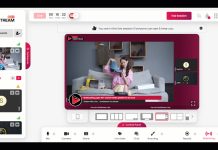

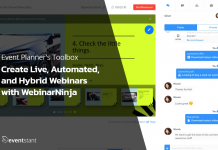
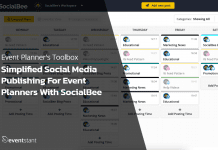



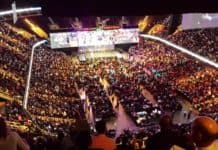

![How Important Are Face to Face Meetings [INFOGRAPHIC]](https://eventstant.com/wp-content/uploads/faceToface_v11-sm-218x150.jpg)


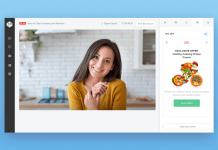







Hello Mona!
Thank you for sharing that! Organizing your first event is completely overwhelming: your article really helps getting through that.
Have you read the “Trade Show Chronicles”? That’s a free ebook written like a novel walking you through the challenges of someone trying to organize his first exhibition booth: planning, budgeting, setting up the booth and so on… quite a nice bedside book to read before starting!
Hi Julien, the book sounds intriguing. I’ll definitely look it up.
Hello Exhibitor, I looked up the book in Amazon and it looks very interesting. I like the approach of making it a novel. Best, Mona
I definitely agree with what you’ve said in tip number four of the article, picking the right venue is an absolute must when you’re planning out a trade show. I’m also glad that you remind your readers to reserve the space as soon as possible once you’ve made the decision. Most event spaces tend to book up very quickly and in months in advance, so you want to make sure that you’ll be able to get your space.
Hello Simon, I agree. It’s best to be prepared when it comes to the venue. Thanks for stopping by.